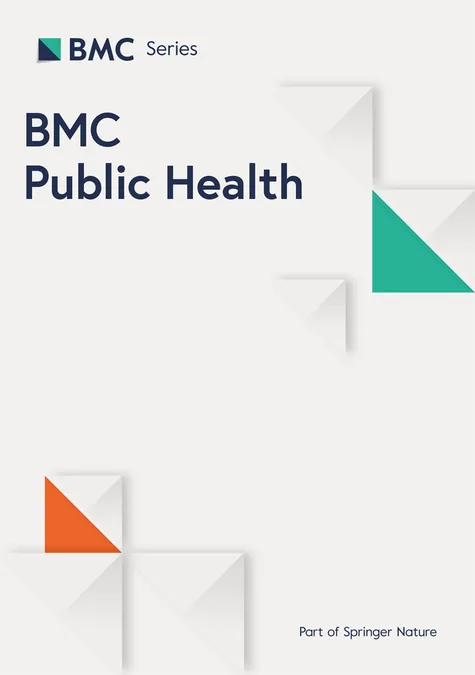
Singapore Unveils Innovative Digital Game to Combat Dementia Stigma
2025-05-21
Author: Rajesh
The Growing Dementia Epidemic: A Call for Awareness
Dementia is a term that encompasses a range of progressive neurological disorders leading to cognitive decline and behavioral changes. With over 55 million people affected globally and nearly 10 million new cases each year, the significance of raising awareness cannot be overstated.
Public Perception: Myths and Misunderstandings
Despite its prevalence, a shocking deficit in public understanding remains. An Alzheimer’s Disease International survey revealed that two-thirds of respondents mistakenly believe dementia is solely a consequence of aging. This misinformation contributes to stigma, hindering the lives of those affected and their loved ones.
Dementia in Singapore: A Closer Look
In Singapore, one in ten individuals aged 60 and above is living with dementia. Historical stigmas associated with dementia have evolved in the region, but negative perceptions linger. A national survey highlighted feelings of shame among caregivers, with many experiencing social rejection.
Engaging the Public: Game On for Change
Innovative initiatives like Dementia Friendly Communities and the Dementia Friends program aim to combat stigma, but awareness gaps persist. Enter gamification—an engaging and effective method for education. Serious games, designed with educational purposes, have shown promise in enhancing public knowledge on various health topics.
Introducing the Dementia Awareness Game
A revolutionary game co-designed with individuals living with dementia aims to reshape public attitudes toward the condition. Evaluated in Northern Ireland with over 1,000 participants, the Dementia Game demonstrated significant improvements in perceptions about the capabilities of those with dementia.
The Singapore Evaluation: Key Study Objectives
The latest initiative aims to assess the impact of the Dementia Awareness Game in Singapore. The study’s primary objectives are twofold: first, to determine if playing the game alters public attitudes toward dementia, and second, to evaluate its effectiveness as an educational tool.
Game Mechanics: Learning Through Play
The Dementia Game allows players to navigate a path while answering questions about dementia—each correct answer earns points. Designed to be completed in just minutes, it can be played on any internet-enabled device, promoting accessibility.
Gathering Insights: Survey Methodology
Using a quasi-experimental design, participants completed surveys before and after gameplay to assess changes in attitude. The study collected demographic information and utilized a validated questionnaire to measure specific attitudes toward dementia.
Collecting Feedback: User Experience and Outcomes
After participation, 138 individuals provided feedback on their gaming experience. Results revealed increased awareness, with the majority finding the game user-friendly and effective in enhancing understanding of dementia.
Positive Reception: What Users Loved
Participants praised the game’s interactive features, immediate feedback, and educational content. Many appreciated how the quiz format combined learning with an enjoyable gaming experience.
Areas for Improvement: Building on Success
While the game garnered positive reviews, players suggested enhancing content with more local information about dementia in Singapore and improving gameplay mechanics.
The Impact of Engagement: Findings and Future Research
Following the game, overall attitudes toward dementia improved significantly among participants, demonstrating its potential as an effective educational tool. While the game proved beneficial in promoting positive perspectives, those with prior experience did not show as significant improvements.
The Road Ahead: A Shift in Understanding
Encouragingly, the study affirms that creativity in public education—such as the dementia-aware gaming experience—can play a crucial role in combating stigma. As research continues, the hope is that these efforts will lead to a more informed society, improving the lives of people living with dementia.




 Brasil (PT)
Brasil (PT)
 Canada (EN)
Canada (EN)
 Chile (ES)
Chile (ES)
 Česko (CS)
Česko (CS)
 대한민국 (KO)
대한민국 (KO)
 España (ES)
España (ES)
 France (FR)
France (FR)
 Hong Kong (EN)
Hong Kong (EN)
 Italia (IT)
Italia (IT)
 日本 (JA)
日本 (JA)
 Magyarország (HU)
Magyarország (HU)
 Norge (NO)
Norge (NO)
 Polska (PL)
Polska (PL)
 Schweiz (DE)
Schweiz (DE)
 Singapore (EN)
Singapore (EN)
 Sverige (SV)
Sverige (SV)
 Suomi (FI)
Suomi (FI)
 Türkiye (TR)
Türkiye (TR)
 الإمارات العربية المتحدة (AR)
الإمارات العربية المتحدة (AR)